
What is Lebanese group Hezbollah and how its militants threaten world
With the immediate aggravation of the situation in the Middle East, radical Islamic organizations have become more active, aiming to harm Israel, if not destroy it, at least. One of them is the Lebanese military-political organization Hezbollah
Espreso will tell you what Hezbollah is, how the organization came to be, and what impact it has on the situation in the region.
What the article is about:
- A brief history of Lebanon: why Hezbollah appeared there
- What Hezbollah does in Lebanon
- Who finances it
- Terrorist activities
- The war between Hezbollah supporters and Israel
A brief history of Lebanon: why Hezbollah appeared there
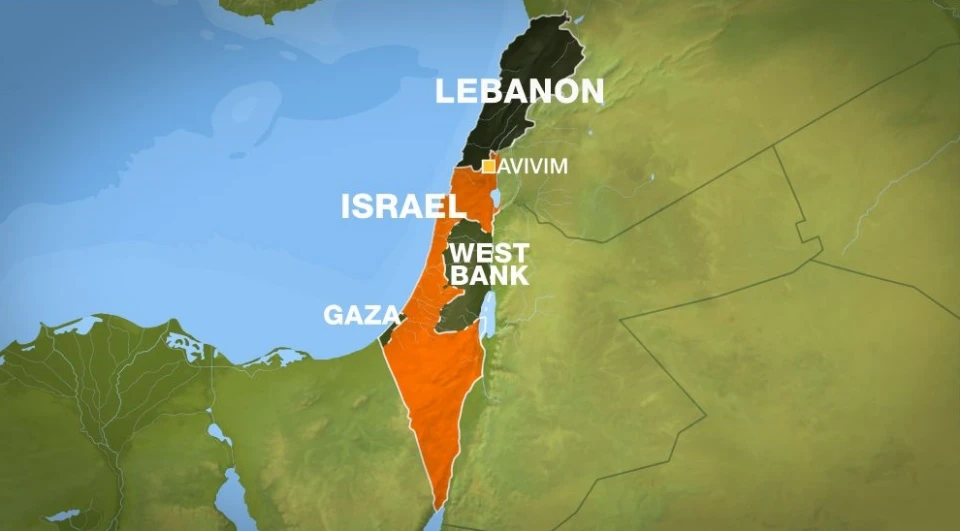
Photo: Wikipedia
To answer this question, we need to take a broad look at Lebanon's history. First of all, Lebanon should not be confused with Libya, which is located in Africa near Egypt. Lebanon is a small country in the Middle East, bounded by the Mediterranean Sea to the west, Syria to the north and east, and Israel to the south. The area of Lebanon is only 10.4 thousand square kilometers (slightly larger than the Chernivtsi region). In contrast, Israel's area is twice as large - 22.1 thousand square kilometers, and Syria's - 185.1 square kilometers.
Lebanon has a long history that dates back 5,000 years, when this territory was inhabited by Phoenician tribes that sailed and traded throughout the Mediterranean Sea. It is to them that we owe our alphabet, because theirs became the basis of the ancient Greek, Latin, and then many modern alphabets, including the Ukrainian one. The Phoenicians were also the first to manufacture glass.
Later, this fertile land became a tidbit of great empires, because, in fact, it was a gateway for trade between the West and the East. First, under the tutelage of the Persian Empire, then the Empire of Alexander the Great, and later the Seleucids, Roman and Byzantine empires, when Phoenicia was conquered by the Arabs in the late 7th century.
Since then, the predominantly Christian population of these lands has been heavily influenced and persecuted by Arab culture. Christians have been fleeing to the northern part of modern Lebanon, which is more mountainous. The Maronite Church, an autonomous Eastern Catholic patriarchate, was founded there and has been functioning for almost a thousand and a half years. In fact, until the end of the 20th century, Lebanon was called the last Christian country in the Arab world. After all, 60 years ago, more than 53% of the Lebanese population professed Christianity. However, now the number has decreased and amounts to 1/3 of the population. It is believed that over the past half century, there has been a decline in the ratio of Christians to Muslims due to a higher level of Christian emigration and a higher birth rate among the Muslim population.
In any case, during the Ottoman rule, Lebanon enjoyed relative peace in the Turkish empire, which ruled these lands for almost four hundred years. However, World War I and World War II changed the balance of power on the Middle East's chessboard. In the period between the two world wars, a separate Lebanese republic emerged under the French mandate. Its peculiarity was that the post of president was always held by Christians, and the post of prime minister by Sunni Muslims. In this way, they tried to maintain internal peace in the country, but it did not work.
The territory of the new republic expanded to the western regions of the Beqaa Valley (near Damascus) and the country became significantly more populated by Muslims who were heavily influenced by Syrian nationalism. This laid the groundwork for an internal conflict whose echoes are still heard in Lebanon - most of Lebanon's Christians are in favor of independence and self-sufficiency, while most Lebanese Muslims want close relations with Syria. In addition, Shiite (a branch of Islam most common in Iran and Iraq) areas in southern Lebanon and the Beqaa Valley have long been neglected by the Lebanese state. Shiites were underrepresented in power and had very little influence in the government. In fact, the Shiites were marginalized by the ruling Sunni Christian duo, which later led to Shiite radicalization in the form of the Hezbollah movement.
For the first ten years after World War II, the Lebanese government tried to implement economic reforms and make friends with Western countries. However, since the late 50s of the last century, Lebanon has rejected Western values and began to get closer and closer to the Arab world. This led to an economic crisis in the 60s. In addition, the internal conflict intensified, as several hundred thousand Palestinian refugees arrived in southern Lebanon after the Six Day War between the Arabs and the Israelis. Over time, various Palestinian organizations began to use southern Lebanon as a base for constant attacks on Israel. Accordingly, Israeli troops retaliated, and Lebanese civilians were killed. This led to an internal political split, which resulted in a civil war between Christians and Muslims in the mid-1970s. Syria and Israel occupied Lebanon. Subsequently, the UN tried to resolve the conflict and sent in its peacekeeping troops.
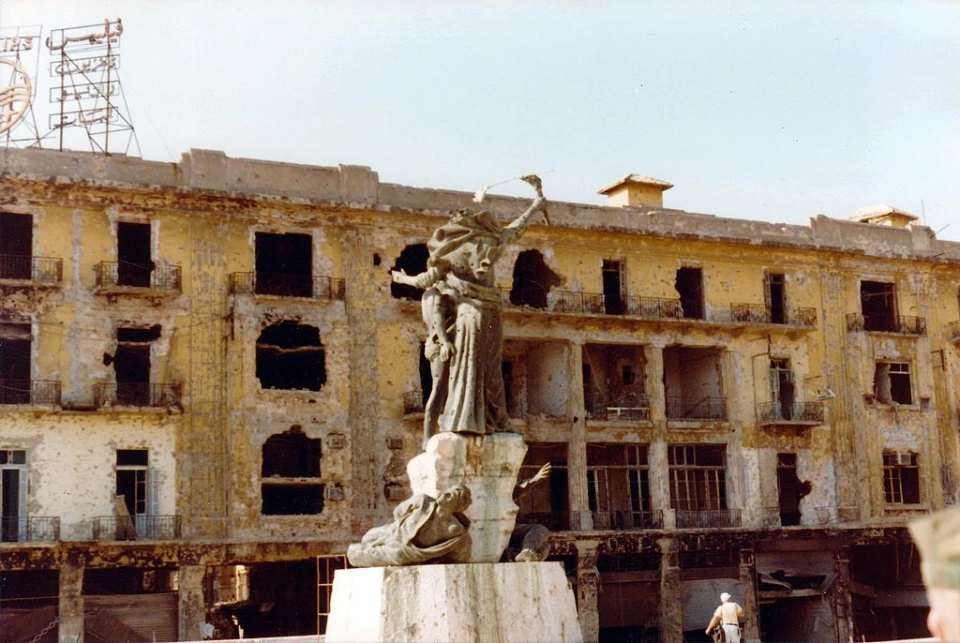
Photo: Wikipedia
In such a tense atmosphere, in the early 80s, Hezbollah, a Shiite military and political organization, emerged in southern Lebanon to counter Israeli intervention and turn Lebanon into a fully Islamic state. Its founders are Lebanese Muslim clerics who studied in Iraq. The organization was created with the support of 1500 instructors of the Islamic Revolutionary Guard Corps, as a branch of the Iranian organization of the same name, Hezbollah, which emerged in the wake of the Iranian Revolution, which brought Muslim radicals to power.
The organization was officially founded in 1985. In its manifesto, Hezbollah declared its three main goals: the expulsion of any "colonial institutions" from Lebanon, the prosecution of the Phalangists (Maronite Christians) for their "crimes" and the establishment of an Islamic regime in the country.
What Hezbollah is doing in Lebanon
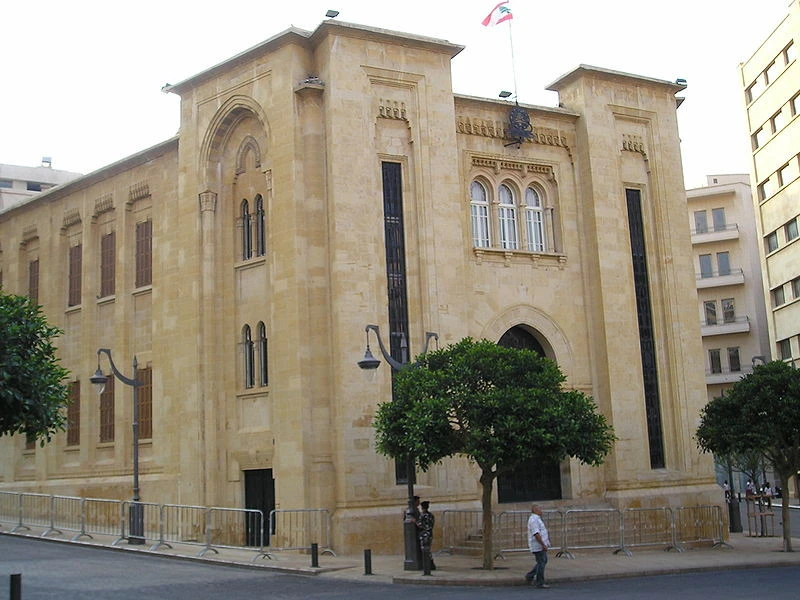
Photo: Wikipedia
The civil war had a very negative impact on social and economic processes in the country. About 200,000 people were killed and maimed, and a quarter of a million people fled the country. Relative peace in Lebanon came in the early 90s. Although the state regained control over part of the border, the country's power was shaky and depended on the influence of other countries, most notably Syria and the Hezbollah organization, which was becoming more and more popular among the local population of many Muslim areas of the country.
Since 1992, the Hezbollah movement has been led by cleric and politician Sayyid Hassan Nasrallah, after Israeli intelligence services killed his predecessor, Abbas al-Musawi. Hezbollah's paramilitary wing is the Jihad Council. And Hezbollah's intelligence services are called "one of the best in the world," saying that they have even infiltrated the Israeli army.
The actual withdrawal of the Israeli army from Lebanon took place only in 2000. The Lebanese government tacitly gave the Hezbollah movement the opportunity to control southern Lebanon, where they gained almost total support from the population, in particular because of the large number of Palestinians who emigrated there.
However, Hezbollah continued to attack Israelis, thus constantly creating unrest in the south of the country through retaliatory strikes by the IDF. This caused civilian casualties, protests, and a financial crisis. Syria took advantage of this and sent its troops back into Lebanon. This again caused a revolutionary wave among Christians, which grew into the Cedar Revolution of 2005.
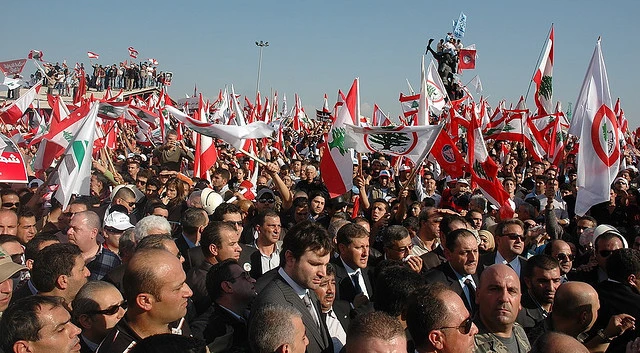
Photo: Wikipedia
Although the protesters succeeded in returning the pro-Lebanese government to power and expelling the Syrians, the elections of that year showed that Hezbollah was not losing support among the population, but rather growing. After all, they managed to get about 20 seats in parliament (they had only 10 seats for ten years). Some of its leaders became ministers. Already in the 2009 elections, Hezbollah formed a coalition government, winning 57 out of 128 seats in the parliament. In 2018, its alliance won the elections again, gaining 70 out of 128 seats in the Lebanese parliament. Now Hezbollah, along with Amal, is one of the two main political parties in Lebanon representing Shiite Muslims.
Thus, having gained democratically recognized power, Hezbollah deployed not only an armed structure, but also began to organize a broad social program to gain even more supporters. The party's civilian wing runs hospitals, the media, and children's and secondary education. Hezbollah is also implementing youth organizations in the country's universities. In particular, Hezbollah organized the Martyrs' Institute, which provides assistance and education to the families of fallen militants. As CNN once wrote: "'Hezbollah has done everything the government should do, from collecting garbage to running hospitals to repairing schools."
On the military side, Hezbollah supporters have built a series of defensive fortifications on the border with Israel. This is a network of bunkers, weapons depots, dugouts, observation posts, machine gun and sniper nests stretching for several tens of kilometers and connected by a system of underground passages. There are also many sites for launchers of multiple launch rocket systems (MLRS). In addition, Hezbollah has built several military camps to train its fighters.
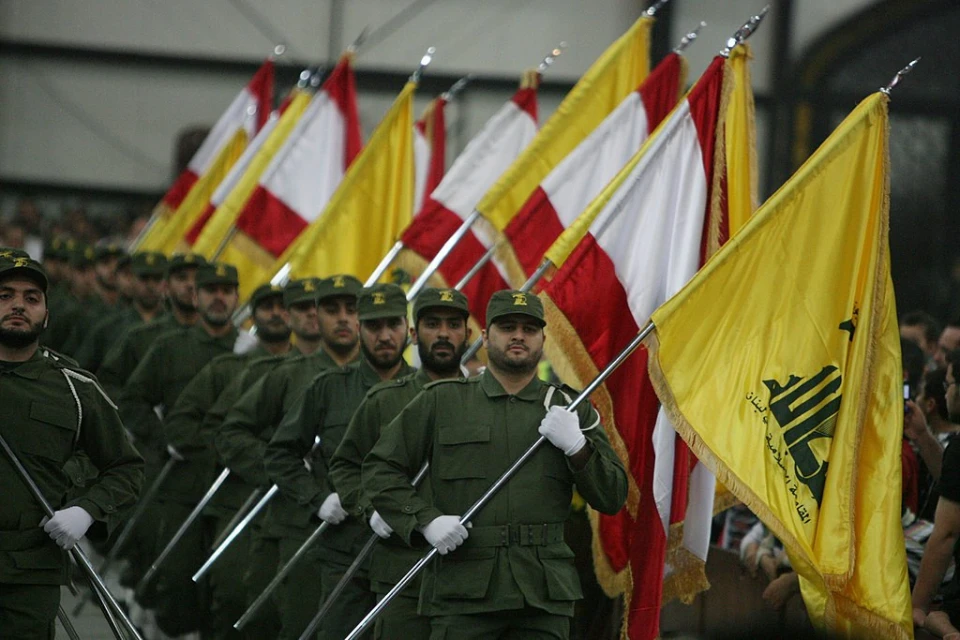
Photo: Wikipedia
Since 2006, the group's military strength has grown so much that its paramilitary wing has become more powerful than the Lebanese army. Today, according to various sources, Hezbollah's army numbers between ten and one hundred thousand fighters. Israeli Defense Forces Chief of Staff Gadi Eizenkot said that Hezbollah has tens of thousands of long- and short-range missiles, drones, anti-tank weapons, advanced computer encryption capabilities, and anti-aircraft guns. The IDF also accused Hezbollah of storing these missiles under hospitals, schools, and civilian homes.
Because of this power, Hezbollah is called a "state within a state" that even pursues an independent foreign policy. In particular, their representatives have interfered in the affairs of Bosnia and Herzegovina, Egypt, Syria, and Bahrain, not to mention constant attacks on Israel.
But where does Hezbollah get the millions of dollars for all this activity in a poor country that is constantly involved in conflicts?
Who is funding it?
It is not officially reported, but most intelligence agencies around the world agree that Hezbollah has substantial support from Syria and Iran. It is not only about money (in 2018, the United States estimated Iran's support for Hezbollah at USD 700 million), but also about weapons and training programs. According to American sources, thousands of Hezbollah members have received military training in Iran. In addition, Iran has supplied thousands of missiles to Lebanon. Of course, Syria and Iran deny this information. Hezbollah representatives say they receive money from donations from around the world.
In addition, over the past ten years, Hezbollah has become much closer to Russia and receives financial and technical assistance from the Russians. This was facilitated by the civil war in Syria, which began in 2011. Hezbollah, along with the Iranians and Russians, sided with Syrian President Bashar al-Assad, who refused to leave office at the request of protesters, leading to an internal war and the intervention of foreign troops in the country. Therefore, the Russians do not consider Hezbollah a terrorist organization, but back in 2015, Russian Deputy Foreign Minister and Special Representative of the Russian President for the Middle East and North Africa Mikhail Bogdanov explained the Russian attitude to Lebanese militants, saying that they did not commit terrorist attacks in Russia and therefore are "a legitimate socio-political force that has representatives in the Lebanese parliament."
Terrorist activities
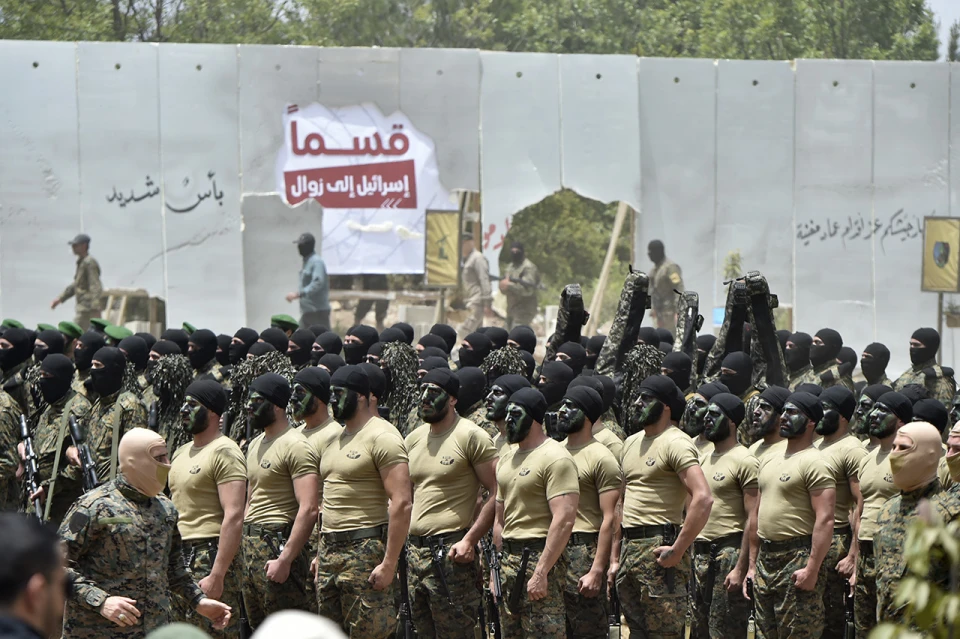
Photo: Getty Images
But most of the world considers Hezbollah to be a terrorist organization. As of October 2020, Hezbollah or its military wing is considered a terrorist organization in 26 countries, including Israel, the United States, the United Kingdom, Canada, Argentina, Japan, the Netherlands, Germany, the Czech Republic, Bahrain, Egypt, and even the Arab League recognized Hezbollah as a terrorist organization in March 2016 (except for Lebanon and Iraq). Instead, the European Union, France, and New Zealand recognize only the military wing of Hezbollah as a terrorist organization. China remains neutral and maintains contacts with Hezbollah. Instead, Iran, Russia, Syria, Algeria, Cuba, and North Korea openly support Hezbollah. The United Nations Security Council has never listed Hezbollah as a terrorist organization on its sanctions list, although some members have done so individually. Ukraine has not yet recognized either Hezbollah or Hamas as terrorist organizations, but the Verkhovna Rada may consider this issue by the end of the year.
UN Under-Secretary-General Mark Meloch Brown explained the ambiguous position of some countries by saying that although "Hezbollah uses terrorist tactics," it is useless to call it a terrorist organization, since some of its activities are legitimate within the framework of a political party that has significant support among the population. After all, in most Arab and Muslim countries, Hezbollah is called a resistance movement engaged in national defense.
However, this "defense" includes terrorist actions not only in Lebanon but also in other countries. Between 1982 and 1986, they carried out at least 36 suicide attacks in Lebanon against American, French, and Israeli forces, killing hundreds of people. In the 90s, Hezbollah did not stop. The most famous terrorist acts were: 1992 attack on the Israeli embassy in Buenos Aires, killing 29 people; 1994 explosion at the Jewish cultural center in Argentina, killing 85 people; 1994 attack on a passenger flight in Panama, killing 21 people; in 1996, the explosion in the Khobar Towers (Saudi Arabia), killing 19 US servicemen; in 2005, the assassination of former Lebanese Prime Minister Rafik Hariri along with 21 other people; the terrorist attack in Istanbul in 2011; the explosion of a bus in Bulgaria with Israeli tourists in 2012.
However, it is interesting to note that after the September 11, 2001, attacks, Hezbollah condemned al-Qaeda for the attack on civilians in the World Trade Center, but remained silent about the attack on the Pentagon.
The war between Hezbollah supporters and Israel
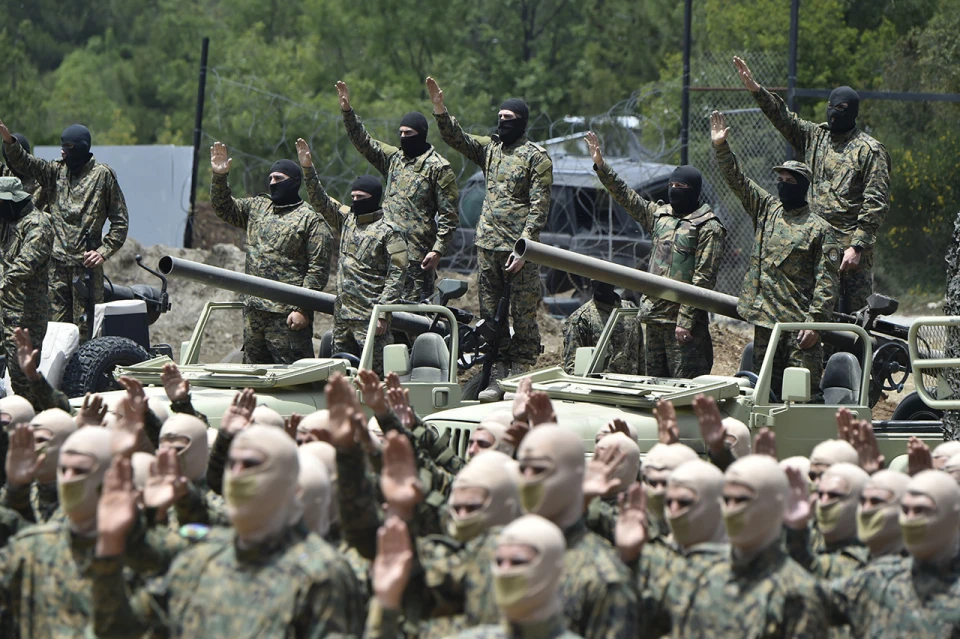
Photo: Getty Images
One might ask why Hezbollah is still at war with Israel, even though it withdrew its troops from southern Lebanon more than 20 years ago. First of all, Hezbollah considers Israel an illegitimate state. Like all Arab radicals, Hezbollah sees the presence of the Israelis and US influence as the main causes of problems in the Middle East. Therefore, they are looking for opportunities to strike at Israel and its citizens at every opportunity.
This led to the Second Lebanon War in 2006 and the IDF's short-term intervention in southern Lebanon. The most interesting thing is that such actions have only added to the movement's popularity, as most ordinary Shiite Muslims see Hezbollah as defenders against the Israelis, whom they simply do not like historically.
In addition, Lebanon has territorial claims against Israel. Lebanon considers the so-called Shebaa (or Shiba) farms in the Golan Heights to be its own. This is a territory of only 22 square kilometers (the area of Uzhhorod is 40 square kilometers), which was captured by Israel in Syria during the 1967 war and which the UN considers Syrian territory occupied by Israel.
Therefore, another escalation in the Gaza Strip and a large-scale attack by Hamas militants on October 7 did not escape the attention of Hezbollah supporters. A day later, the organization's militants fired on Israeli positions on the border with the disputed Golan Heights and supported Hamas in its operation against Israel. On October 15, rockets were again fired from Lebanon at the IDF Al-Raheb base on the Israeli-Lebanese border. Hezbollah claimed that the attack was carried out with guided missiles "in response to the crimes and aggression of the Tel Aviv regime." In turn, the Lebanese government said it did not want a war and asked not to start one, but admitted that it did not control Hezbollah's activities.
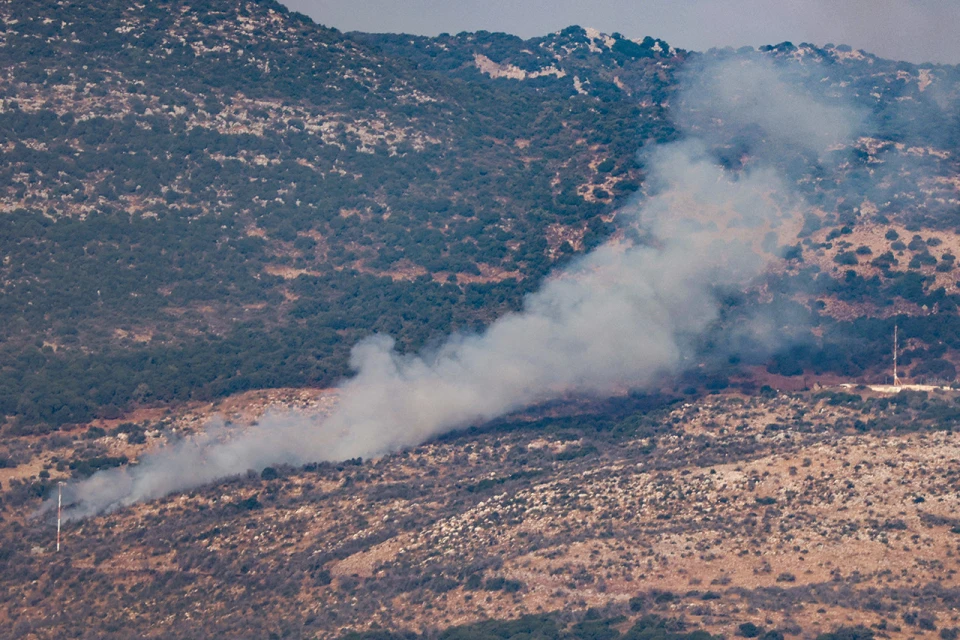
Photo: Getty Images
Deputy Director of the Center for Middle East Studies Serhiy Danilov expressed an interesting opinion on Espreso that Iran is pressuring Hezbollah to become more actively involved in the war with Israel.
"Everyone says that Hezbollah is a puppet of Iran. But today we cannot say that Hezbollah has opened a full-fledged second front. It is now following its usual rule - a zero-sum game. That is, you shoot - we shoot, one of your wounded is one of our wounded, your destroyed house is our destroyed house," commented Serhiy Danilov.
According to him, for a long time there was an unspoken rule between Hezbollah and the Israeli Defense Forces, for example, if a base is fired upon, they call and warn. If the Israelis saw a threatening movement that resulted in a shot, but did not hit anything, Hezbollah would respond with a shot also at the free territory so as not to hit people.
"Hezbollah is under pressure from Iran to get more involved in the war. Hezbollah's leader Nasrallah makes all sorts of scary speeches, but I don't see any desire to fight there. That is why it seems that the Iranians are beginning to move their other puppets to Syria and, probably, to southern Lebanon. One of them is a group recruited from the Shiites of Afghanistan, the Hazaras. And another similar group is made up of Shiites in Pakistan. Iran needs this to fight with someone else's hands and to put Nasrallah at a disadvantage by showing that it is not fighting," he explained.
The situation is currently difficult, but Hezbollah has not started a large-scale war with Israel. Perhaps the organization's leaders fear that they could lose their power in Lebanon if the IDF takes them seriously.
- News












































